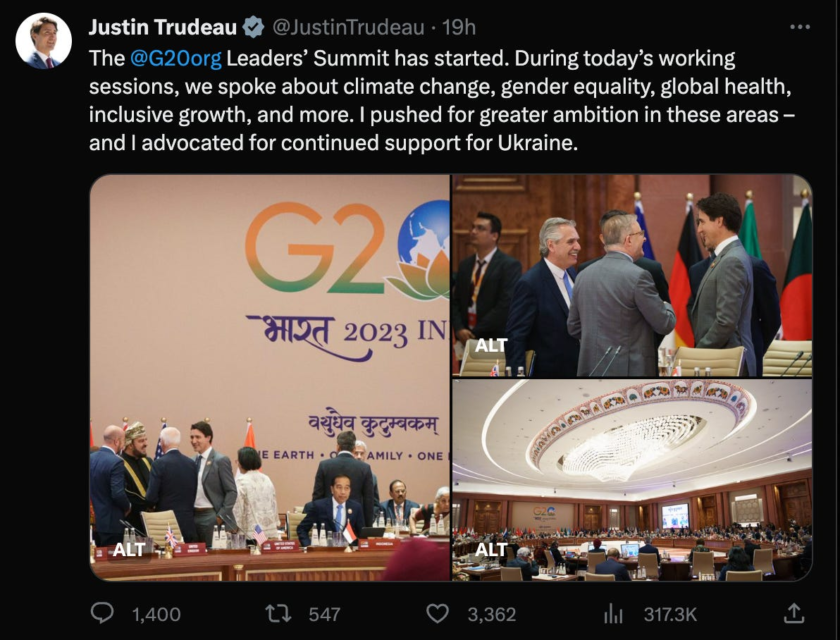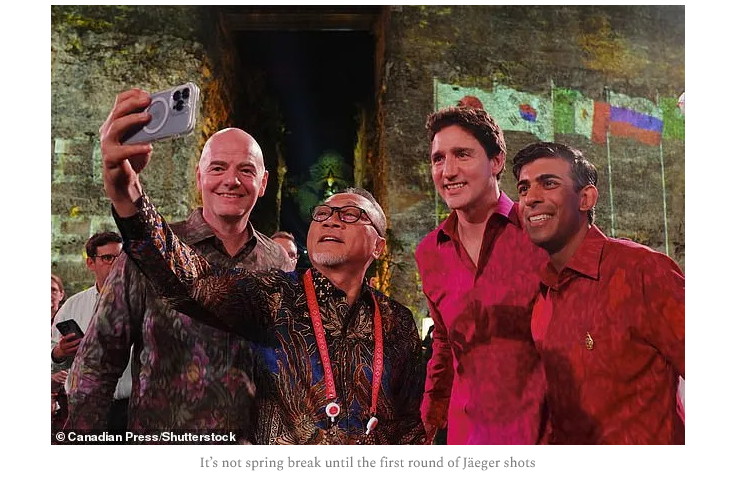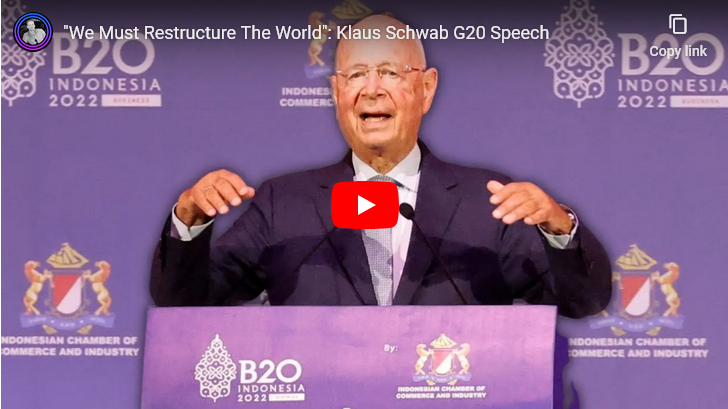Paul Wells on the latest subcontinental pratfall of Prime Minister Look-At-My-Socks:
Later, word came from India that Justin Trudeau’s airplane had malfunctioned, stranding him, one hopes only briefly. It’s always a drag when a politician’s vehicle turns into a metaphor so obvious it begs to go right into the headline. As for the cause of the breakdown, I’m no mechanic, but I’m gonna bet $20 on “The gods decided to smite Trudeau for hubris”. Here’s what the PM tweeted or xeeted before things started falling off his ride home:
One can imagine the other world leaders’ glee whenever this guy shows up. “Oh, it’s Justin Trudeau, here to push for greater ambition!” Shall we peer into their briefing binders? Let’s look at Canada’s performance on every single issue Trudeau mentions, in order.
On climate change, Canada ranks 58th of 63 jurisdictions in the global Climate Change Performance Index. The country page for Canada uses the words “very low” three times in the first two sentences.
On gender equality, the World Economic Forum (!) ranks Canada 30th behind a bunch of other G-20 members.
On global health, this article in Britain’s BMJ journal calls Canada “a high income country that frames itself as a global health leader yet became one of the most prominent hoarders of the limited global covid-19 vaccine supply”.
On inclusive growth, the United Nations Conference on Trade and Development has a composite indicator called the Inclusive Growth Index. Canada’s value is 64.1, just behind the United States (!) and Australia, further behind most of Europe, stomped by Norway at 76.9%.
On support for Ukraine, the German Kiel Institute think tank ranks Canada fifth in the world, and third as a share of GDP, for financial support; and 8th in the world, or 21st as a share of GDP, for military support.
Almost all of these results are easy enough to understand. A small number are quite honourable. But none reads to me as any kind of license to wander around, administering lessons to other countries. I just finished reading John Williams’ luminous 1965 novel about university life, Stoner. A minor character in the book mocks the lectures and his fellow students, and eventually stands unmasked as a poser who hasn’t done even the basic reading in his discipline. I found the character strangely familiar. You’d think that after nearly a decade in power, after the fiascos of the UN Security Council bid, the first India trip, the collegiate attempt to impress a schoolgirl with fake trees, the prime minister would have figured out that fewer and fewer people, at home or abroad, are persuaded by his talk.
But this is part of the Liberals’ problem, isn’t it. They still think their moves work. They keep announcing stuff — Digital adoption program! Growth fund! Investment tax credits! Indo-Pacific strategy! Special rapporteur! — and telling themselves Canadians would miss this stuff if it went away. Whereas it’s closer to the truth to say we can’t miss it because its effect was imperceptible when it showed up.
In a moment I’ve mentioned before because it fascinates me, the Liberals called their play a year ago, as soon as they knew they’d be facing Pierre Poilievre. “We are going to see two competing visions,” Randy Boissonault said in reply to Poilievre’s first Question Period question as the Conservative leader. The events of the parliamentary year would spontaneously construct a massive contrast ad. It was the oldest play in the book, first articulated by Pierre Trudeau’s staff 50 years ago: Don’t compare me to the almighty, compare me to the alternative. It doesn’t work as well if people decide they prefer the alternative. It really doesn’t work if the team running the play think it means, “We’re the almighty”.







